There’s no way to cheat the system, says Israeli startup
Being unable to sit still, struggling to concentrate, and mood swings – these are just some of the symptoms people with ADHD (Attention deficit hyperactivity disorder) may experience.
For over 150 million people, it may cause academic difficulties, social skills problems, and strained relationships.

The problem is that identifying the disorder is not an exact science. It can be a lengthy process, and include a series of questionnaires and interviews, the answers to which may vary depending on who is answering them, and their state of mind at the time.
It is generally followed up by a 20-minute-long boring computer game, which measures how quickly and accurately a person responds to visual and auditory stimuli.
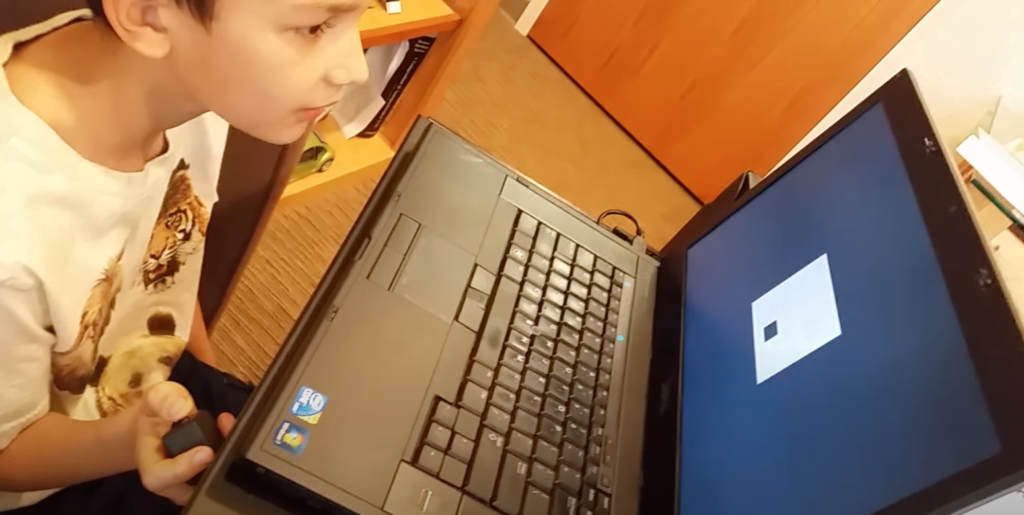
But if the person being tested doesn’t want to cooperate – particularly children – this can affect the results of the diagnosis. It’s not like a blood test, where the results you see are what you get.
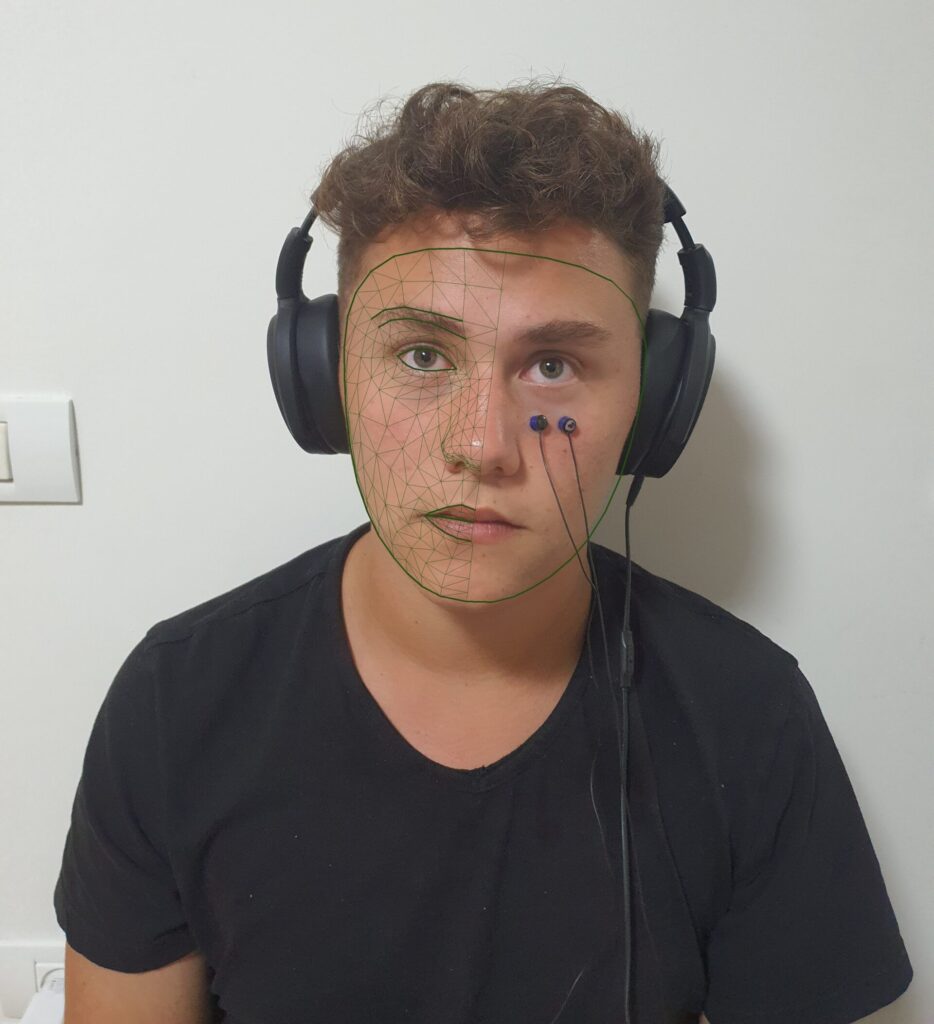
There are also people who cheat the system -feigning ADHD symptoms to get a positive diagnosis and a prescription for Ritalin. It’s commonly used as a medication to treat the disorder but is widely abused by students and others to make them them more focused and alert.
And so, Israeli company MindTension has introduced what it claims is the world’s first fully objective ADHD test.
It measures the reaction of a person’s eyelid muscles to different noises, and, the company says, it can’t be tricked.
“This is a reflexive response, and you have no way of changing it regardless of your level of awareness,” explains Dr. Hadas Shatz-Azoulay, Chief Operating Officer.
“It’s like when you go to the doctor and he taps your knee with a hammer. It doesn’t matter how hard you flex your leg.”
The patient has a couple of electrode adhesives attached under their eyes, and dons a headset for a six-minute test.
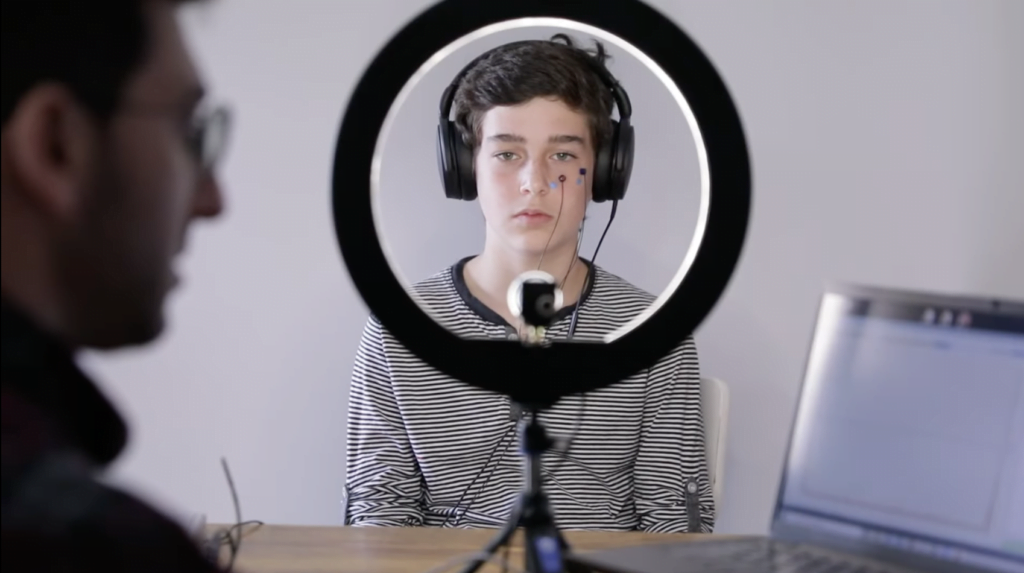
They hear six different sounds designed to make the brain stem – which regulates automatic bodily functions like heart rate, breathing, and reflexes – respond, by startling the patient. Each sound is played 10 times.
Our response when we’re startled is to blink – an evolutionary trait, helping us save our visual capacity so we can clearly assess the threat, and choose between our freeze, fight or flight instincts.
“We only look at the response of three synapses (the gap between two neurons where they can communicate) – from your ear, to your brain stem, and back to the orbicularis (eyelid) muscle,” Shatz-Azoulay tells NoCamels. “So we can learn about your brain stem response from the micromovement of that particular muscle.”
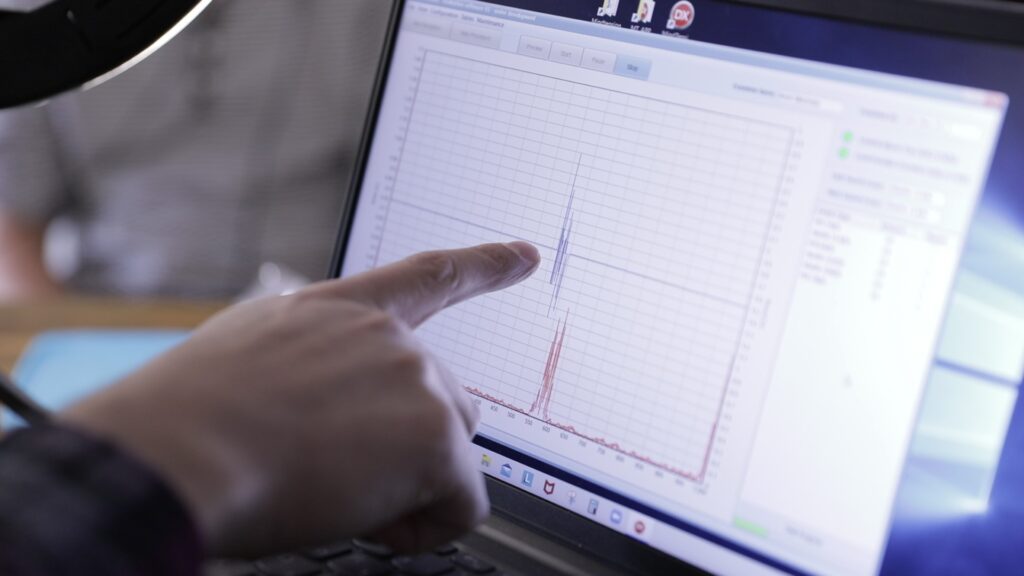
MindTension monitors any change in the way the patient reacts to the sound after hearing it a certain number of times. The more pronounced the response, the more serious the case of ADHD.
Sign up for our free weekly newsletter
SubscribeResearchers believe people with ADHD react strongly to these noises because they have retained some ‘primitive reflexes’ – involuntary reactions that newborn babies have that typically disappear within the first year of life.
Children may retain these reflexes for a number of reasons, including a traumatic birth or repeated ear infections.

The reflex MindTension is testing is the Moro (or startle) reflex – which causes an infant to tightly grip her mother when she feels she’s falling.
A child who retains the Moro reflex will be hypersensitive to outside stimuli, will startle easily, and may appear fidgety or restless – symptoms commonly seen in children with ADHD.
Numerous studies over the years have found that people with ADHD are more likely to retain the Moro, and other primitive reflexes than those without.
There are many more applications for a test like this, beyond diagnosing ADHD. It can test how attention is impaired in general among combat pilots, surgeons, truck drivers – any profession that requires focus, and can potentially put peoples’ lives at risk when they are unable to do just that.

MindTension can also determine whether a person’s ADHD medication is working, and if they are taking too high or too low of a dose.
“This is a real pain today. It can take six months to a year before you find the right medication and the right dose,” says Shatz-Azoulay.
“And if it didn’t help after three weeks of taking it, you do another questionnaire, and change your medication again for a month. It takes time, and in this time, everyone’s suffering.”
With MindTension, regardless of whether the patient was diagnosed with its device, they first take the six-minute test. Then they take their prescribed medication, wait an hour, and do the test again. If the medication is working, the new test should show an increase in attention.

The company, which is based in Nir Am, a kibbutz in Southern Israel, is currently working towards FDA approval. Clinics will buy the device, and physicians will pay $20 per test administered – the same rate as ‘gold standard’ ADHD tests like the QB, Moxo and Tova – while the patient pays for the appointment fee.
MindTension’s device has the same accuracy as the other ADHD tests (85 per cent). But Shatz-Azoulay says that unlike other tests it’s uncheatable, and because it uses machine learning and AI, it’s constantly improving.
“As long as we have more data accumulating and more and more tests done with our system, it will become more accurate.”
The company is currently collaborating in clinical trials in Southern Israel, and will be starting its first clinical trial in the US soon. Shatz-Azoulay estimates that they will start selling the device by the second half of 2024.
Related posts

Editors’ & Readers’ Choice: 10 Favorite NoCamels Articles

Forward Facing: What Does The Future Hold For Israeli High-Tech?

Impact Innovation: Israeli Startups That Could Shape Our Future


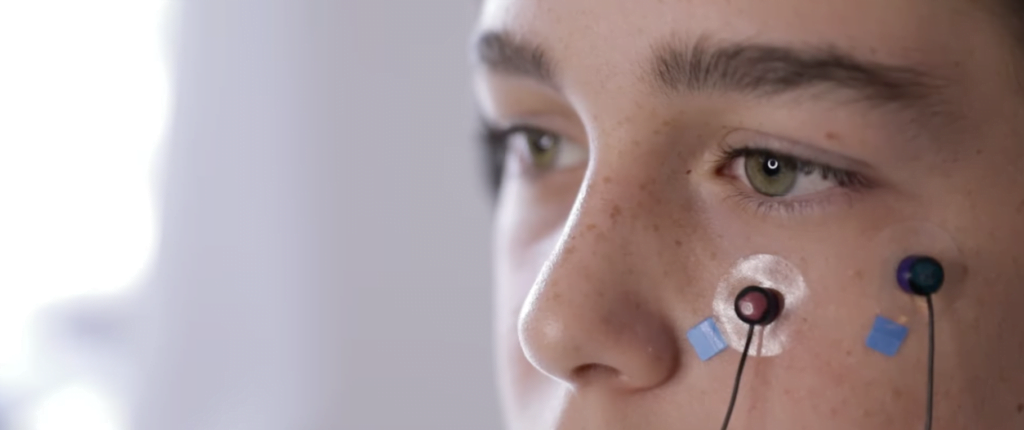

Facebook comments